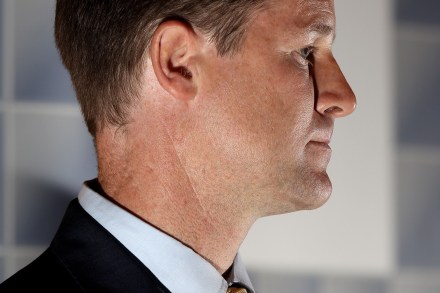Clegg binds himself closer to the coalition (for now)
The quotes emerging, in advance, from Nick Clegg’s Westminster Hour interview are a mix of the unsurprising and the intriguing. To the first category belongs his claim that “parties in government tend to get a dip in their popularity” – I mean, he’s hardly going to say that the Lib Dems’ decline in the polls is a disaster, is he? But this, for instance, belongs firmly in the second category: “If we weren’t in a coalition now I don’t think people would take any notice of the Liberal Democrats …. If we were in a coalition with Labour, arguably our identity crisis would be even worse.” In other words, the



















